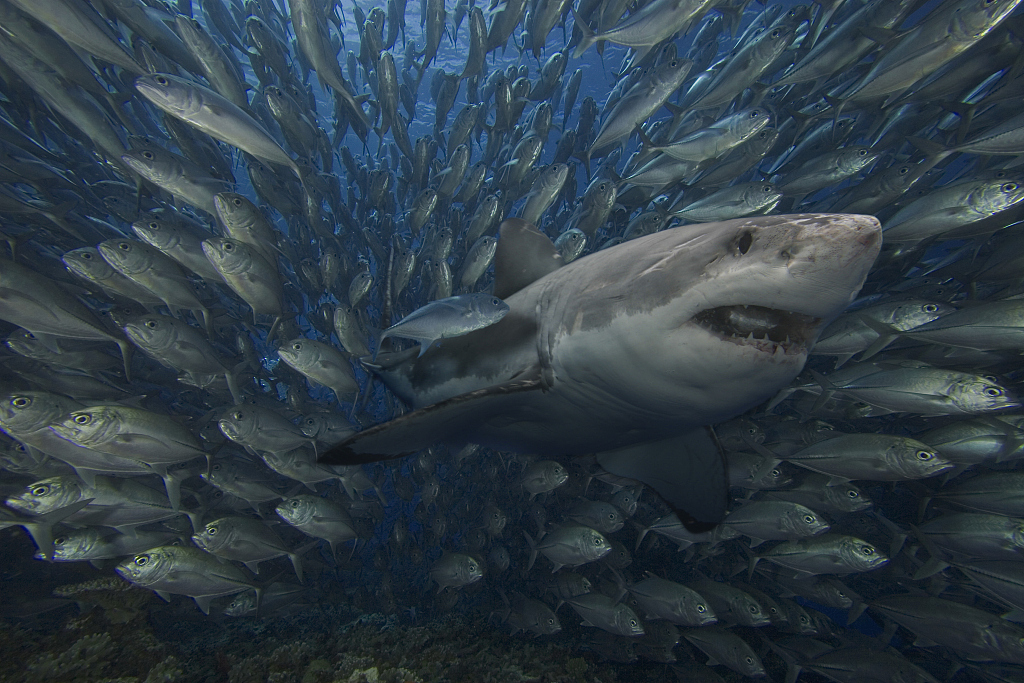Counter to the common assumption that great white sharks mainly feed on large sea mammals, Australian researchers found the apex predator actually spends more time than expected feeding on bottom-dwelling fish species.
The first-ever research on the diet of great white sharks, published in the journal Frontiers in Marine Science on Monday, examined the stomach contents of 40 juvenile great white sharks caught off Australia's east coastline.
With the results showing those juvenile white sharks still mainly relied on mid-water fish, like eastern Australian salmon as main food source, lead author Richard Grainger, a PhD candidate from the University of Sydney said they also like to hunt near the seabed.

A great white shark and a shoal of fish. /VCG
A great white shark and a shoal of fish. /VCG
"Within the sharks' stomachs we found remains from a variety of fish species that typically live on the seafloor or buried in the sand. This indicates the sharks must spend a good portion of their time foraging just above the seabed," Grainger said.
"The hunting of bigger prey, including other sharks and marine mammals such as dolphin, is not likely to happen until the sharks reach about 2.2 meters in length."
The study found around 17 percent of great white shark diet came from bottom-dwelling fish, such as stargazers, sole or flathead.
Ray species, such as stingrays that like to bury themselves in the sand made up around 15 percent of the shark's diet.
The study also found great white sharks migrate seasonally along the east coastline of Australia with the movement range increased with age.
By understanding the sharks' feeding and migratory habits, researchers hoped to find the best way to protect the species and avoid human-shark conflict.
(Cover image via VCG)
(If you want to contribute and have specific expertise, please contact us at nature@cgtn.com.)
Source(s): Xinhua News Agency